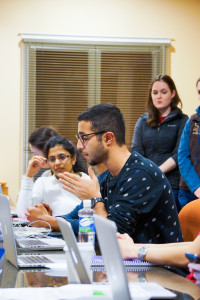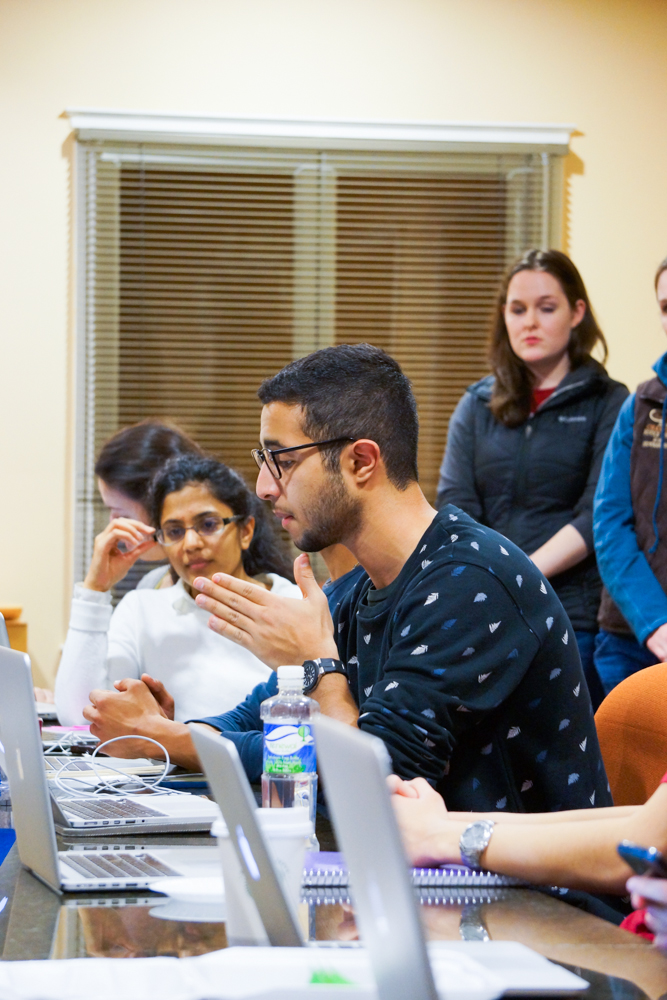
The 15th ASSU Undergraduate Senate returned to the topic of special fees requests at its meeting Tuesday evening, continuing a discussion started during last week’s meeting by turning to recommending the placement of individual requests on the spring ballot.
Following an unexpectedly large increase of 20 percent in the total amount of special fees requested by student groups this year, Senate Chair Ben Holston ’15 and Appropriations Committee Chair Angela Zhang ’16 spent the last week modifying the special fees budgets of various student groups in an effort to mitigate any rise in the student activity fee levied on all students.
“After we asked the student groups what they could cut in their budget [after explaining the situation], they told us specific [line items] that we could modify,” Zhang said.
Even after the modifications, however, the total amount of special fees requested still rose from approximately $1.96 million to roughly $2.1 million.
Representatives from three student groups—the Robotics Club, the Jewish Student Association (JSA) and L’Chayim Club—that had been denied a potential spot on the election ballot due to tardy filing of documentation voiced their discontent with the outcome during the meeting.
Eric Smalls ’16, president of the Robotics Club, appealed to the Senate to overrule the Election Commission’s decision, arguing that the club has increased from 50 to 100 members and needs a comparable increase in funding.
Senator Ilya Mouzykantskii ’16 endorsed Smalls’ position.
“The Constitution states that anyone can be on the ballot if they [fulfill] the technical details of the special fees bill,” Mouzykantskii said. “The [Robotics Club] should be allowed an opportunity to petition for special fees.”
The Senate ultimately overruled the Elections Committee and approved a bill permitting the Robotics Club to petition to be on the spring ballot.
The Senate then discussed the standing of JSA and L’Chayim, whose financial officers had failed to submit a Declaration of Intent in time. The Senate, however, overruled that finding and approved the modified budget proposals.
Senators addressed the potential precedent of allowing student groups to be late with deadlines by proposing to significantly cut the late groups’ special fees budgets.
The Senate also recommended that certain student groups—including Cardinal Ballet, Counterpoint, the Flipside, Green Living Council and the Leland Quarterly—become general fees groups. Those groups will not be on the ballot for special fees funding this year.
In the course of the Senate’s conversation about special fees groups, senators debated the legitimacy of certain monetary policies, including printing costs, officer salaries and subsidization of show tickets. Many committee chairs also voiced concerns over granting large sums of money for the purpose of benefitting only a small portion of the student body.
Outside the meeting, some student organizations voiced their own concerns to The Daily about the special fees process.
“I think the process was very poorly run and the groups that contributed to the increase in Specials Fees [requests] should be held accountable, instead of the groups that followed policy,” said Ian Chan ’14, president of the Society for International Affairs at Stanford.
At the meeting’s conclusion, Holston announced that he plans to run for re-election.
Contact Peter Moon at pmoon ‘at’ stanford ‘dot’ edu.
